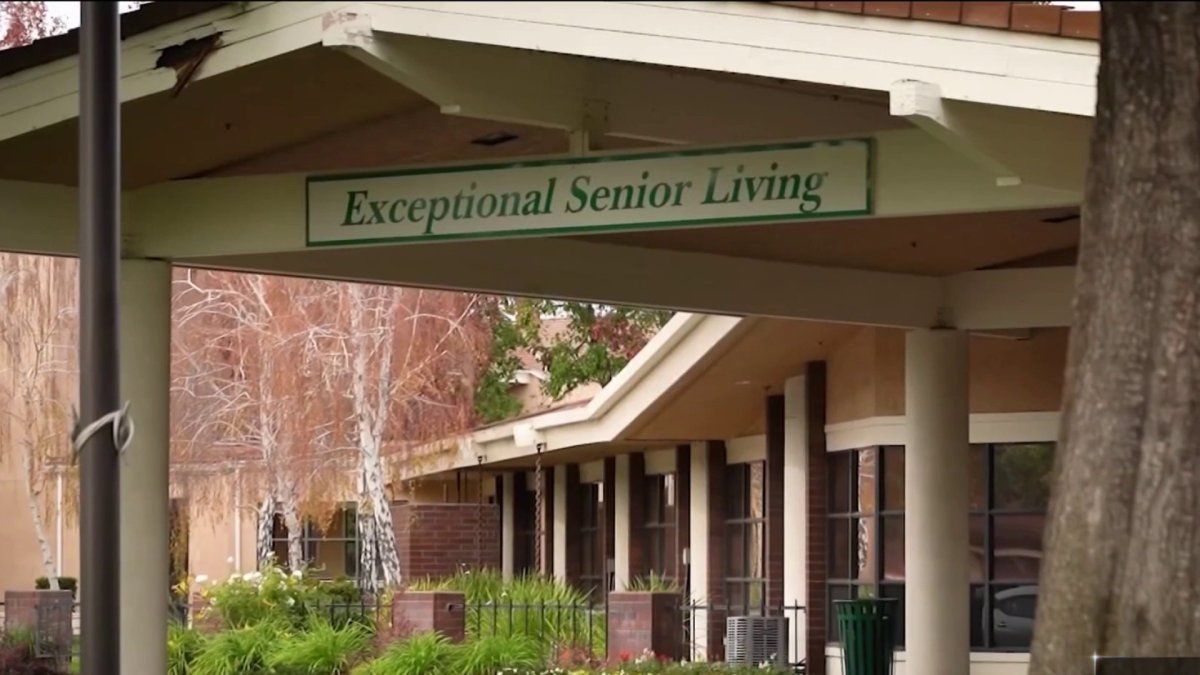
In a conversation with industry insiders, Investigative Reporter Candice Nguyen found out what you can do when searching for an assisted living facility for a loved one and what to do to ensure their wellbeing is maintained during their stay.
First thing’s first. Don’t wait.
In a conversation with industry insiders, Investigative Reporter Candice Nguyen found out what you can do when searching for an assisted living facility for a loved one and what to do to ensure their wellbeing is maintained during their stay. She speaks with David Hahklotubbe, a gerontologist and the CEO of Sonnet Hill Senior Living, and Carole Herman, the president and founder of the Foundation for Aiding the Elderly (FATE).
What's the biggest piece of advice you give families when they're searching for an assisted care facility for their mom, dad or significant other?
Get a weekly recap of the latest San Francisco Bay Area housing news. Sign up for NBC Bay Area’s Housing Deconstructed newsletter.
David: Without a doubt, it's don't wait…So there's a tendency for people to wait until crisis. We get phone calls 3:00, 4:00 o'clock on a Friday from a discharge planner from a hospital saying, “Oh, this person needs placement and they haven't done any research.” And then, of course, that puts both the elder and the decision maker into chaos.
Carole: There's a lot of things to look for, but I think the most important thing is that you have quick access to your family member…You want to get a facility that's close to you because you have to be vigilant.
What are things family members should look out for or ask about?
David: First, you call and you find out if [the facility] is within your budget. There's really no point in wasting your time…So don't overextend yourself because I guarantee you the cost is only going to go up from there. If you're barely able to afford it getting your foot in the door, you're not looking at it from the long haul.
David: Then start asking questions not just to the provider; ask the questions to the residents themselves. Ask the questions to families that are there and most importantly, ask the staff “How is it working here? Do you enjoy your job here?” And then the last question is “Who's running the show?” Ask them, "What is your director's credential? What is the CEO's background?"
What are some specific questions that some families can ask about medication, eating, the different tiers of care that their loved one might fall into if they need something else later on?
Carole: I think before they sign the contract, they should have in there…a time period that the contracts are relooked at every year because people do change and their needs do change.
What if the facility says “no” and you have to sign this long-term contract?
Carole: If I was being strong-armed to sign that contract and say this or the highway, I would probably be looking for another facility.
What can a family do if they're in a situation where they suspect their loved one is being neglected or mistreated?
Carole: Well, I think the first thing they should do if you're seeing bruises or maybe a fall took place is get your family member into the emergency room to have a full examination by a doctor to make sure that your family member was not hurt. [After that and depending on the severity] it's best to try to get it resolved with the person in charge. And that's the executive director in an assisted living facility.
David: If you're not getting satisfaction, then there are a number of different entities that will take on that investigative role. One of them is the long-term care ombudsman. It is an organization that oversees quality of care in long term care in California, and every region has a long-term care ombudsman. And then, of course, if that's not working out and you're not getting satisfaction there, you go directly to the licensing folks.
Carole: It just depends on the severity of what happens to your loved one. If somebody falls and has a hematoma with the brain or somebody falls and I've got to client, this happened to happen to a client…broke her neck and caused her death. Well, that warrants a complaint with the state…If they're not treating your family member correctly and your family members got injuries, you don't have to keep them there even if you have a contract. You could take them out immediately.
David People research and test drive vehicles more so than they test drive and look at senior care facilities. To some extent, there's onus on the consumer as well. You've got to do your research. You've got to perform due diligence on behalf of your loved one.
Resources:
Crisis line 800-231-4024
Ombudsman Services of Contra Costa, Solano and Alameda Counties 925-685-2070
Alameda County Social Services
Ombudsman Services of San Mateo County 650-780-5707
Long-Term Care Ombudsmen Program (San Francisco County) 415-751-9788
Long-Term Care Ombudsmen Program (Santa Clara County) 408-944-0567
Napa Long Term Care Ombudsman Program 707-255-4236
Long-Term Care Ombudsmen Program (Sonoma County) 707-526-4108
Report a complaint to the state:
For assisted living/residential-care facilities for the elderly (RCFEs), contact the Department of Social Services and Community Care Licensing at 1-844-LET US NO or 1-844-538-8766.
For skilled nursing facilities (SKN), contact the California Department of Public Health.
Before filing a complaint with the state, review this fact sheet.